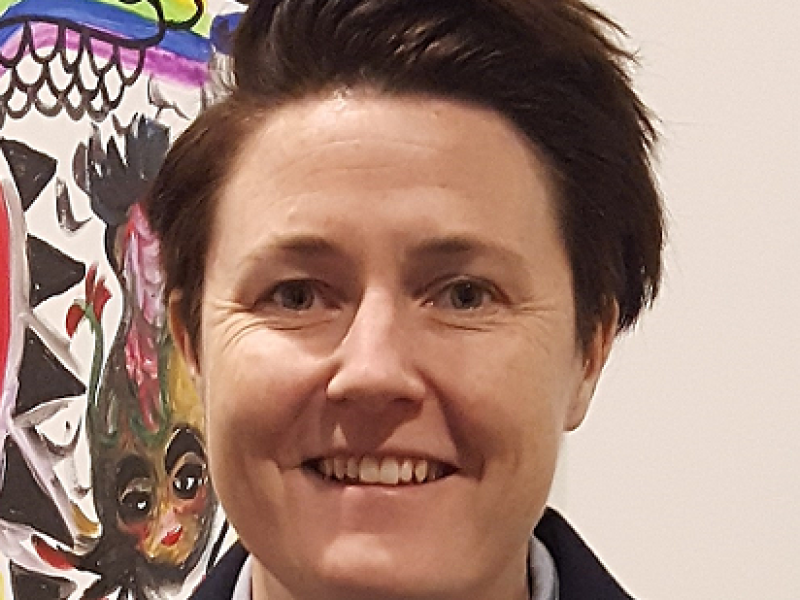Katie Larsen
Senior Manager Inclusion and Participation, Mind Australia
Each World Mental Health Day is an opportunity to take stock and consider where we are at this moment in our long journey towards a mental health system that is more effective, more humane, more just and more enlightened.
Here in Australia, we are at an exciting moment of transition from talking the talk - about having a mental health system that is led by people who have lived experience of mental ill-health - to walking the walk by actually creating one.
The Victorian government’s recent commitment to open the state’s first Lived Experience Residential Service is emblematic of this moment. A recommendation of the Royal Commission into Victoria’s Mental Health System, this service will be a key stepping stone in this crucial transformation of our mental health systems in Australia.
This service will effect the crucial transition from having people with lived experience working in existing service models to having people with lived experience lead every step of the design, development, governance, operation and evaluation of a service. Most importantly, this will include people with lived experience expertise in leadership roles.
I hope it will be a pioneer and provide a template for future services in how to traverse the shifts in power needed to realise this long called for transformation of the mental health system.
But how do we get there and what challenges will there be on the way?
Talking the talk
The foundational importance of having people with lived experience participating in all aspects of our mental health system is a central theme of all current major pieces of mental health reform in Australia.
This includes the Productivity Commission Mental Health Inquiry Report, the National Suicide Prevention Strategy, Vision 2030 and the Royal Commission into Victoria’s Mental Health System.
The Interim Report of the Royal Commission into Victoria’s Mental Health System (2019, p. 512) stated that: “Lived experience work will be a central pillar of the future of the mental health system: new lived experience roles will be established and supported, spanning service design and delivery, service and system leadership, research and evaluation, and system accountability an oversight.”
The Royal Commission’s Final Report has commitments to lived experience woven through its 74 recommendations. The recommendations indicate that we need the future mental health and wellbeing system to have multiple and substantive lived experience leadership roles – to lead change and balance power.
What is the Lived Experience Residential Service?
The recently announced Lived Experience Residential Service is a genuine innovation in peer led service delivery. The service will be developed by Mind Australia in partnership with Alfred Mental Health and Addiction Health.
It will offer clients short-term treatment, care and recovery-focused support from peer practitioners, along with developing new approaches to lived experience leadership and governance to ensure the integrity and fidelity of peer led models.
The residential service will provide a range of therapies including art, music, outdoor and recreational-based programs and group and individual therapy. Clinical services will also be available.
Mind will work closely with lived experience leaders in Victoria to support the development of the service.
Learning to walk the walk
The development of truly peer-led mental health and wellbeing services is a significant paradigm shift, with all the real world challenges that entails.
There is an extensive international evidence base across a range of settings* that peer-led programs provide genuine and effective alternatives, but experience has shown that people get nervous and revert to the security of old models.
Clinically based or controlled services have persisted as the safe space for funding bodies and policy makers well past the broad acceptance of evidence of the effectiveness of more holistic peer and community based services.
Even within the mental health sector, persistent stigma can prevent managers from having the courage to let go and give people with lived experience an opportunity to take the reins and demonstrate their capabilities to perform in managerial capacities.
We need to look beyond the usual leadership structures for the courage and confidence to allow these changes to happen. We have lived experience leaders across the country who can give us the faith we need to take that next step. The conversation has been going on for decades and now is the time to act.
We need to interrogate concepts such as risk, quality and best practice through a lived experience lens in order to achieve this change.
Getting it right requires a radical reframe. It requires investment in the development of lived experience leadership, an appetite for genuine innovation and co-design, and a willingness to disrupt power within traditional decision-making processes.
This challenge and effort is worth it. A peer-led system will have a heart and wholeness to it in a way the existing mental health system hasn’t always been able to demonstrate or maintain.
A lived-experience led approach is ultimately about all of us. Resisting the reductive - and misleading - binary distinction between the mentally well and the mentally ill, it avoids judgement, neutralises stigma and recognises the complexity of human experience.
There is no other model of mental health support that provides better opportunities for genuine reform and improved wellbeing than the work of lived experience-led support. Let this International Mental Health Day be remembered as the tipping point for the realisation of this model across Australia.
*For example:
Peer-run Respites: An Effective Crisis Alternative
Peer support, self-determination, and treatment engagement: A qualitative investigation
The role of peer-led services in improving the health and wellbeing of LGBTIQ+ people
